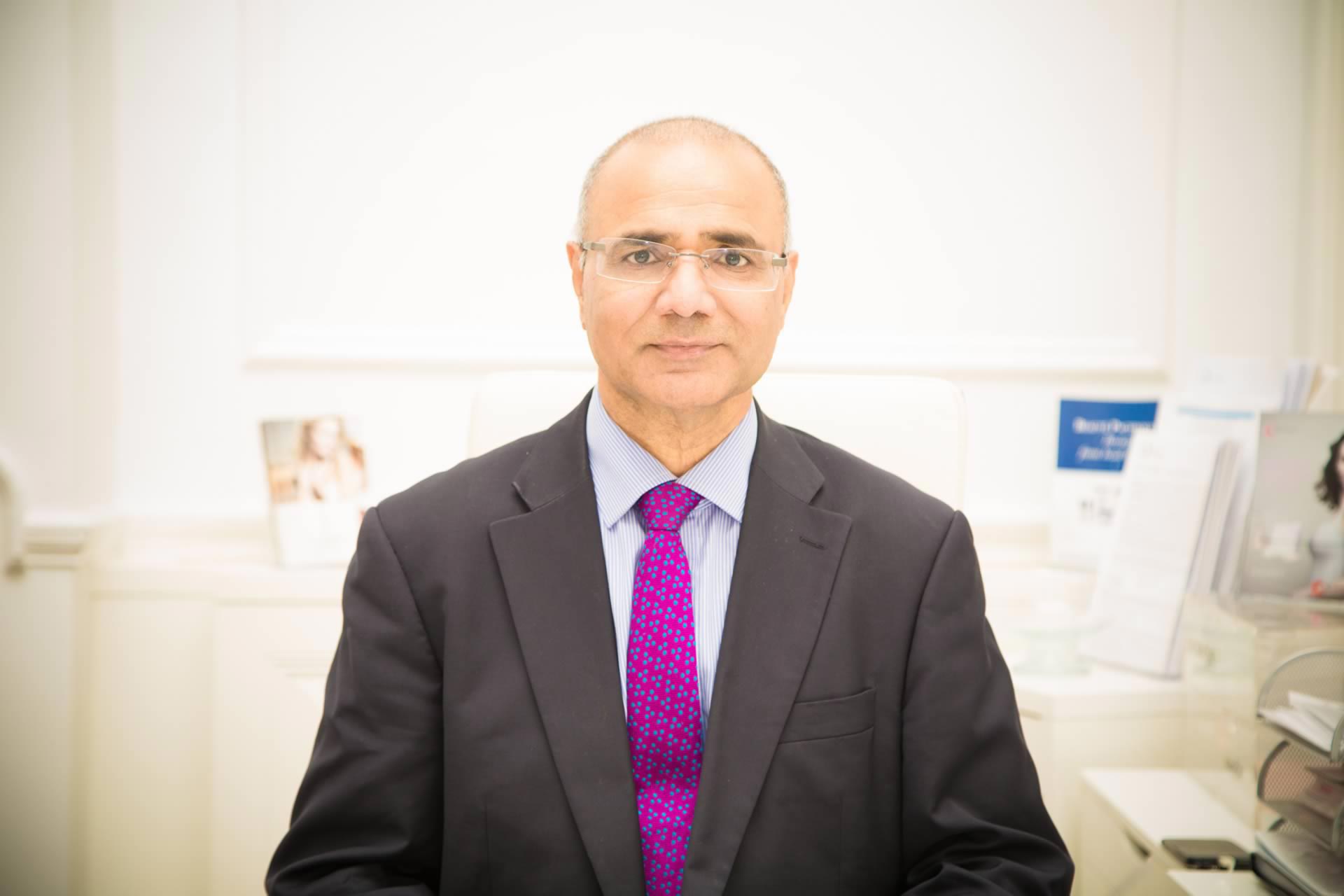Endometriosis - when to see a specialist
02 March 2020
Endometriosis awareness takes places during the month of March. Mr Mohammad Masood, Consultant Obstetrician and Gynaecologist discusses the symptoms, causes, diagnosis and treatment of this disease - and when to see a specialist.
Endometriosis is a medical condition that affects 1 in 10 women of reproductive age in the UK and around 10% of the world’s female population*.
The condition itself occurs when the endometrium (the lining of the uterus) begins to grow in other areas of the female reproductive system such as the ovaries, fallopian tubes or along the pelvis. As this tissue breaks down as it would within the menstrual cycle, it has no place to go and so causes symptoms and potential complications.
Symptoms
The most common symptom felt by most women who suffer endometriosis is severe cramping during menstruation, this is caused as the lining sheds and causes internal bleeding in areas that it does not belong in. This can cause blockages and the formation of scar tissue and cysts.
Other symptoms that women suffering from endometriosis may experience include pain during intercourse, fatigue, bleeding between periods and possible painful urination and bowel movements. However, some woman will not have any telling symptoms and the condition is only diagnosed when they find that they are struggling to conceive.
Causes
There is no clinically known reason for the cause of endometriosis however there are a number of risk factors that seem to increase the likelihood of suffering from endometriosis, such as:
- Never having given birth
- Short menstrual cycles (less than 27 days)
- Previous damage to the cells that line the pelvis
- Suffering from other medical conditions which cause irregularities in the menstrual flow
Another extremely pronounced risk factor, and is highlighted as a possible cause, though the evidence is not 100%, is genetics; having a mother who also suffers from endometriosis.
Diagnosis
Due to the nature of the symptoms of endometriosis the only true way to diagnose the condition is to undergo a minor surgical procedure known as a laparoscopy. A laparoscopy will involve inserting a thin scope into your abdomen to view your pelvic organs, where any extra endometrial tissue can be identified.
However, before it gets to this point your gynaecologist will try and rule out a number of other conditions which have similar symptoms and can be diagnosed without the need for laparoscopy, using basic medical testing, such as a pelvic exam or vaginal and abdominal ultrasound examinations.
Treatment
At your consultation, you should expect to discuss a number of factors that will impact the course of the treatment plan that your gynaecologist will recommend for you. These factors include your age, the severity of symptoms and whether you are wanting to become pregnant at present or in the future.
If you are not looking to get pregnant then our first course of action is to treat endometriosis through the use of hormonal birth control pills, providing a less intrusive treatment, while helping to control your condition and alleviate the symptoms. However, if you are looking to get pregnant, then our treatment plan may involve the use of the hormone GnRH agonist.
If treatment via medication does not relieve symptoms then we will look to treat your condition through surgery, including laparoscopy or a laparotomy, which will require a gynaecologist to go through the abdomen and remove the extra endometrial tissues.
In nearly all cases patients will feel relief from their range of symptoms after surgery, though symptoms could possibly come back after two years, here the use of medication may be used alongside surgery to prolong the symptom-free period.
If, however, symptoms persist, and pain returns after surgery, then a final option may be to perform a hysterectomy.
Condition management
There are certain areas of your lifestyle you can target which may help to manage your endometriosis. Good nutrition and a healthy diet will always aid your cause regarding anything to do with your health and endometriosis is no different. As well as this, living an active life has been known to help with managing the condition.
Eating plenty of fresh fruit and vegetables will provide a lift to your immune system while foods rich in essential fats will offer an anti-inflammatory boost. Try to avoid drinking things with a high caffeine content as they, along with tobacco, can place a strain on your liver.
So, there you have a complete guide to what is endometriosis, the potential causes and symptoms and how to help relieve your symptoms. If you are concerned about your health then please contact your local gynaecologist for further advice.
As with any medical condition, it is important to book an appointment with a specialist. So, if you notice that you have any endometriosis symptoms or if you have any concerns then please get in touch with a Gynaecologist. Currently, because it is so difficult to diagnose, endometriosis can take up to 12 years for a definitive diagnosis with the average time length at around eight and a half years. This is why it is imperative to see a specialist gynaecologist as soon as you notice any of the symptoms.

Mr Mohammad Masood is a Consultant Obstetrician and Gynaecologist at Spire Hartswood Hospital. He runs regular clinics on alternate Monday mornings and weekly evening clinics on a Thursday. To find out more information or to book an appointment with Mr Masood call us on 01277 266 761.
*Source: https://endometriosis-uk.org/endometriosis-facts-and-figures

